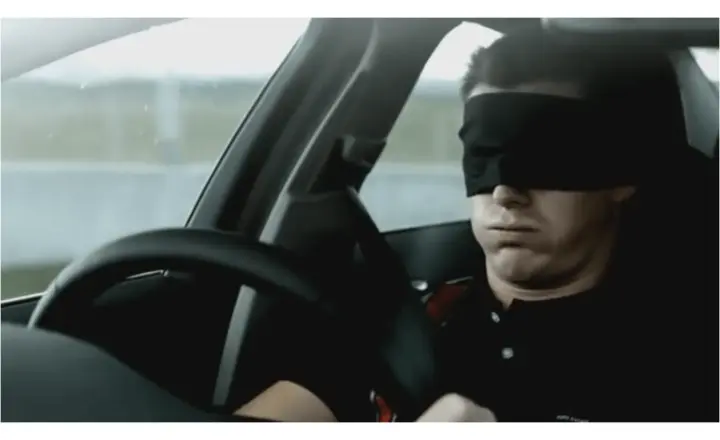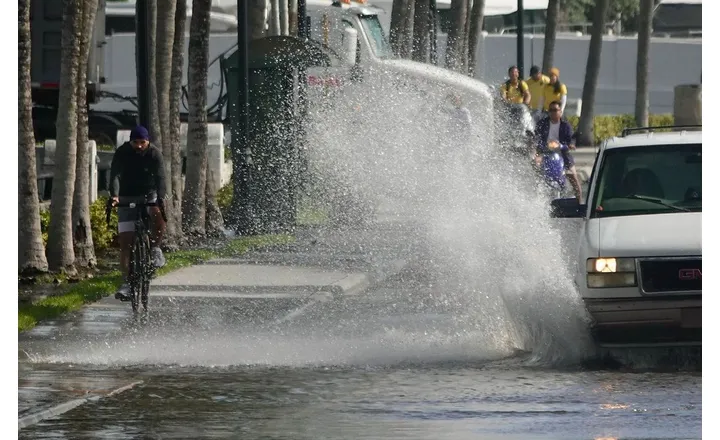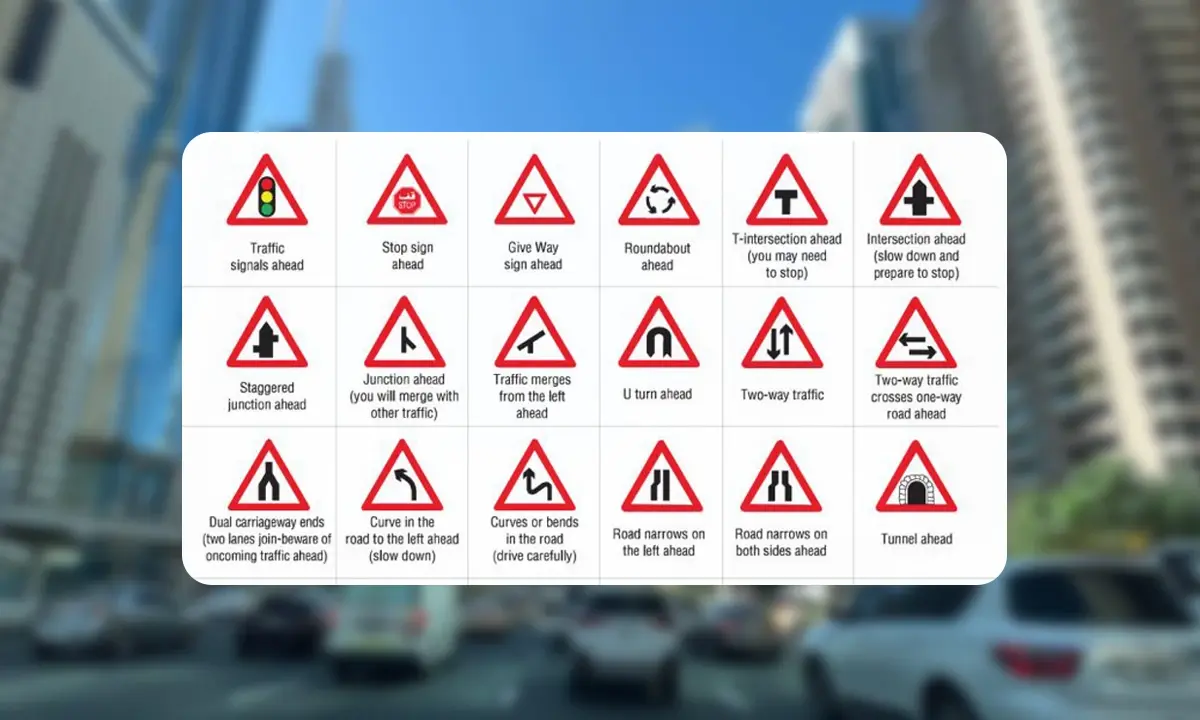Strange Driving Laws Around the World | A Guide to Driving
![]() Author : Alirezaa | Date : Monday 12 February 2024 15:28
Author : Alirezaa | Date : Monday 12 February 2024 15:28

Driving laws vary significantly around the globe, shaping how we navigate roads in different countries. While many regulations aim to ensure safety and order, some countries have unique laws that might seem peculiar to outsiders. From prohibitions on driving dirty vehicles in some places to mandatory requirements for carrying spare eyeglasses in others, these laws reflect each locale's diverse cultural, environmental, and safety considerations. Awareness of these strange driving laws is crucial for travelers, as ignorance can lead to fines or legal troubles. This article explores the intriguing world of Strange Driving Laws from Around the World, offering a glimpse into the unusual regulations governing roads beyond our borders. I discussed strange driving laws in various countries, including the Emirates, Iran, Thailand, Oman, the USA, Australia, Europe, and Turkey. It highlights unique regulations, such as cleanliness of vehicles, dress codes for drivers, and footwear rules. Some of these laws may seem necessary for safety or cultural reasons, while others might appear ridiculous.
Strange Driving Laws in the Emirates, Keep your car clean!
In the United Arab Emirates (UAE), One particularly unusual regulation is the strict prohibition against driving dirty cars. The rationale behind this law is rooted in maintaining the aesthetic appeal and cleanliness of public spaces. In cities like Dubai and Abu Dhabi, where the urban image is of paramount importance, driving a vehicle covered in dust or sand can result in fines. Authorities argue that dirty cars detract from the beauty of the environment and, in some cases, can even pose a safety risk if the dirt obscures the driver's vision or the vehicle's lights.

✔️Read More : What are the driving rules in Dubai?
This law underscores the emphasis on cleanliness and public image in the Emirates, reflecting broader cultural values. It also highlights the challenges of driving in a desert climate, where sand and dust are ever-present. For travelers and expatriates, this law serves as a reminder of the importance of regular car maintenance and cleanliness, not just for aesthetic reasons but also to comply with local regulations. Adhering to such laws is essential to avoid fines and contribute to preserving the region's pristine appearance, which is a source of pride for its residents.
Strange Driving Laws in Iran, the most unusual law
In Iran, driving laws reflect the country's unique blend of cultural norms and safety concerns, with some regulations standing out for their distinctiveness. One of the more unusual laws pertains to the dress code for female drivers. Women in Iran are required to adhere to the Islamic dress code (Hijab) not only in public spaces but also while driving. This means that female drivers must wear a headscarf and modest clothing, even if they are in their vehicles regardless of whether they are visible to the public or not. Traffic police can stop women who do not comply with this dress code while driving, leading to fines or other penalties. But these days, most of the people do not follow this bizarre rule.
This regulation is part of the broader legal framework in Iran that enforces the Hijab, underscoring the significant role of religious and cultural norms in public life, including road safety and conduct. For travelers and expatriates, understanding and respecting this law is crucial when driving in Iran. It’s a vivid reminder of the importance of cultural sensitivity and the need to adapt to local customs, even in situations that might seem private, like being inside one’s car.
Strange Driving Laws in Thailand
Thailand, known for its breathtaking landscapes and vibrant street life, also has its share of unique driving laws that reflect the country's commitment to safety and order. One particularly unusual law in Thailand is the requirement for drivers to wear shirts while behind the wheel. This law applies to everyone, regardless of whether they are driving a car, riding a motorcycle, or even a tuk-tuk. The rationale behind this regulation is tied to public decency and safety standards. Driving without a shirt is considered inappropriate and a violation of public decency norms in Thailand.
This rule may seem surprising to visitors from countries where such a dress code for driving is unheard of. However, it underscores Thailand's cultural expectations and legal efforts to maintain a certain level of decorum in public spaces. For tourists and expatriates, it serves as a quirky reminder of the need to familiarize themselves with and adhere to local laws, no matter how unusual they may seem. Compliance with this regulation not only helps avoid fines but also demonstrates respect for Thai culture and societal norms. Whether you're navigating the bustling streets of Bangkok or cruising through the scenic countryside, remembering to wear a shirt while driving is an essential part of the journey in Thailand.
Strange Driving Laws in Oman, do not wear sandals!
In Oman, a country known for its rich history and stunning natural landscapes, the driving laws include some unique regulations that reflect the nation's commitment to both safety and local customs. One of the more distinctive laws in Oman prohibits drivers from wearing traditional sandals or flip-flops while operating a vehicle. The rationale behind this regulation is safety-focused, aiming to prevent accidents that could occur if sandals were to slip off or become entangled with the pedals.
This law exemplifies Oman's approach to road safety, emphasizing the importance of proper footwear to ensure full control over the vehicle at all times. It's a clear indication of how local customs and practical safety considerations can influence driving regulations. For travelers and expatriates in Oman, adhering to this law means ensuring they wear closed shoes or other appropriate footwear while driving, to avoid fines and contribute to road safety.
Understanding and respecting such local regulations are crucial for anyone driving in Oman. It's not just about legal compliance; it's also about showing respect for the country's efforts to keep its roads safe for everyone. This peculiar law serves as a reminder of the importance of being aware of and adapting to the local driving conditions and regulations, no matter where you are in the world.
Strange Driving Laws in the USA
The United States, with its vast expanse and diverse cultures, hosts a variety of driving laws that can vary significantly from one state to another. Among these, some laws stand out for their uniqueness or outright peculiarity, reflecting the local character and concerns of different regions. Here are a few examples of strange driving laws across the USA:
- Alabama: It's illegal to drive blindfolded. While it seems obvious for safety, the fact that this law needs to be explicitly stated highlights the extent to which legislation can go to ensure road safety. The question is, who does that? :)))

- Alaska: It is illegal to tie a dog to the roof of your car. This law speaks to animal welfare concerns, ensuring pets are transported safely and humanely.
- California: In some cities, driving with no visible license plates is illegal. While this is a common requirement, California emphasizes the visibility of license plates, going as far as to prohibit driving vehicles where the plates are obscured by dirt or other substances.
- Montana: For a time, there was no daytime speed limit on rural highways, leading drivers to use their judgment for safe speeds. This has since changed, but it reflects the state's vast open spaces and the evolving nature of road safety standards.
These laws, while they may elicit a chuckle or bewilderment, underscore the diversity of legal approaches to driving safety and public welfare in the United States. For travelers and residents alike, they serve as a reminder that driving practices and regulations are not universal, even within a single country. Adapting to local driving laws is not just about avoiding fines or legal issues; it's about respecting the local community's standards and contributing to the overall safety and well-being of all road users.
Strange Driving Laws in Australia, watch out bus passengers!
Australia, known for its vast outback, unique wildlife, and cosmopolitan cities, has a set of driving laws that cater to its diverse landscapes and conditions. Among these, certain regulations stand out for their distinctiveness, often reflecting the country's approach to safety, environmental concerns, and animal welfare. Here are some examples of unusual driving laws in Australia:
- Splashing Mud on Bus Passengers: In some parts of Australia, it is illegal to splash mud on public bus passengers by driving through puddles. This law underscores a commitment to courtesy and public safety, ensuring that motorists are mindful of their impact on pedestrians and public transport users.

- Securing Dogs in Open Vehicles: In certain states, there's a law that requires dogs to be properly secured when they're being transported in the open rear of a vehicle (such as a ute or pickup truck). This regulation aims to protect the animal's welfare, ensuring they are safe and cannot fall or jump out of the moving vehicle.
- No Animals on Laps While Driving: It's illegal in some parts of Australia to have animals on your lap while driving. This law is designed to prevent accidents caused by drivers being distracted or impeded by their pets.
- High Beams in Victoria: In Victoria, there is a specific requirement that drivers must not use high beams within 200 meters of an oncoming vehicle or when following a vehicle at less than 200 meters. This law, while common in terms of intent globally, is strictly enforced in Victoria to prevent accidents and ensure driver safety at night.
These laws reflect Australia's proactive stance on driving safety, animal welfare, and the protection of public spaces. They serve as a reminder to both locals and visitors that driving responsibly involves adhering to regulations designed to protect all members of the community, including pedestrians, public transport users, and animals. Understanding and respecting these unique driving laws is essential for anyone navigating the roads down under, ensuring a safe and enjoyable experience in Australia's diverse landscapes.
Strange Driving Laws in Europe, fill your gas tank!
Europe's rich tapestry of cultures and histories is mirrored in its driving laws, with each country boasting its own set of unique regulations that can sometimes appear peculiar to outsiders. Here are some examples of unusual driving laws across various European countries:
- Denmark: Drivers are legally required to check under their cars for sleeping children before starting the engine. This law underscores the country's commitment to child safety and serves as a precaution in residential areas where children might play.

- Cyprus: Eating or drinking anything while driving is prohibited, including water. This regulation aims to reduce distractions and ensure drivers maintain full control over their vehicles at all times.
- Germany: It's illegal to run out of gas on the Autobahn (highway). The law is in place to prevent dangerous situations caused by vehicles stopping unexpectedly on fast-moving roads.
- Spain: Drivers who wear glasses are required to keep an additional pair in their vehicle at all times. This ensures that if the first pair is damaged or lost, the driver can still comply with vision requirements for driving.
- France: Drivers must carry a breathalyzer kit in their vehicles. This law aims to reduce drunk driving by enabling drivers to test their alcohol levels and ensure they are below the legal limit before starting the vehicle.
- Russia: It's illegal to drive a dirty car, particularly if the license plates are not visible. This law is intended to ensure vehicles are kept in a condition that allows for easy identification and compliance with safety standards.
These laws, while varied, all share a common goal of enhancing road safety, reducing accidents, and promoting responsible driving behaviors. They reflect the individual concerns and cultural nuances of each country, reminding travelers and locals alike of the importance of familiarizing themselves with local regulations before hitting the road. Adapting to these unique laws not only helps avoid fines but also contributes to the safety and well-being of all road users in Europe's diverse driving environment.
Strange Driving Laws in Turkey
- Strict Seatbelt Laws: Turkey enforces the use of seatbelts for all passengers in a vehicle, not just the driver and front-seat passenger. This law is strictly enforced, with fines for non-compliance.
- Zero Tolerance for Drinking and Driving: Turkey has very strict laws against drinking and driving. The legal blood alcohol limit is lower than in many other countries, reflecting a zero-tolerance policy for alcohol consumption by drivers to enhance road safety.
- Use of Horns: In some parts of Turkey, drivers might use their vehicle horns more liberally than in other countries, although this is more of a cultural practice than a law. However, excessive or unnecessary use of the horn in residential areas at night might be subject to regulation.
- Headlight Use: Similar to some other countries, Turkey requires the use of headlights during rain or snow, regardless of the time of day, to improve visibility.
Some strange driving laws from the rest of the world
- Switzerland: It's not allowed to wash your car on a Sunday, emphasizing the country's quiet, restful weekends.
- Australia: Transporting hay bales in the boot of your car is illegal, an old agricultural law that's still in effect.
- Botswana: When transporting animals by motorbike, they must not obstruct the driver's view, highlighting safety and visibility concerns.
- Sweden: Headlights must be on 24 hours a day, ensuring visibility at all times.
- Mecca, Saudi Arabia: There are dedicated motorway lanes for Muslim and non-Muslim drivers, reflecting cultural and religious considerations.
- San Francisco, USA: It's illegal to polish your car with used underwear, a law that's as specific as it is peculiar.
- California, USA: Women are forbidden from driving in a dressing gown, a regulation touching on public decency.
- Ontario, Canada: It's poor manners and prohibited to enter a cab with bad breath, emphasizing courtesy.
- Florida, USA: Elephants must pay to park at a meter, a whimsical law from a time when animal transportation was more common.
- Kentucky, USA: It's illegal for pets to molest a vehicle, a unique law aimed at protecting property.
- China: You're not allowed to stop to let pedestrians cross, which could catch many drivers by surprise.
- UK: Using your phone to pay at a drive-through requires turning off the engine and applying the handbrake, aiming to reduce distracted driving.
- Germany: Driving naked is allowed as the car is considered a private space, but clothes are required when exiting the vehicle to enter a public space.

These laws offer a glimpse into the wide variety of driving regulations around the world, each reflecting the local culture, safety concerns, and sometimes just historical quirks. Whether practical, safety-oriented, or just plain unusual, they underscore the importance of familiarizing oneself with local laws when traveling or moving to a new country.




